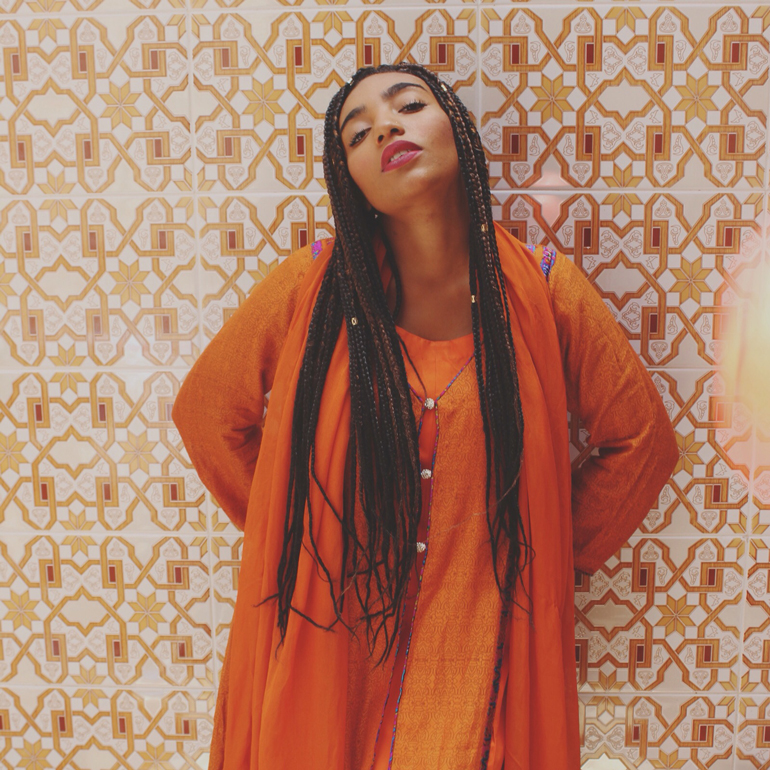
It’s my first week in Vienna, and I’m enjoying exploring all that the city has to offer. The late August air is warm to the skin, and the sun rises early and sets late. I’m spending my fourth afternoon in the city at the little outdoor café at the end of our street. I order a café latte, and I think about where I want to go later this evening. I notice you staring at me from two tables over. I try to ignore it.
You stare for a while (you always do), and so I politely smile, intending to embarrass you into looking away. You misunderstand my smile. It wasn’t an invitation, though now it’s too late and you’re coming over. You’re dressed in jeans and a black polo shirt this time. You have light brown hair with grey flecks in it. You try to break the ice with some insignificant comment about the weather. I smile again, my lips pressed tighter together this time. You keep talking, oblivious to my discomfort and disinterest. Moments later, you ask my name, and then finally, you ask the question you’ve been wanting to ask from the moment you saw me: “So, where are you from?” Except that you’re not actually curious about where I’m from, but rather why I look the way I do.
The above-described scenario has become a regular one. It’s never exactly been an unfamiliar occurrence, but since moving to Vienna, it happens practically every day. I get it: I don’t look like most people around me here. My hair is a little (a lot) curlier, and my skin is a little (a lot) darker. In Dhahran, I didn’t look like most people around me either. Or in Atlanta, or Casablanca, or New York.
In the Arab world, we have a saying: ism 3ala musama. Translated, it basically means that you become the meaning of your name. My name is Hajar. Translation: Emigrate. I prefer to use the word “journey” when describing the meaning of my name. And if you asked me to put my life into one word, I would have no word to choose but my name. My life has been one long journey – from one country and culture to the next. My migration – my hijra – has come to lie at the core of who I am.
What’s most interesting about my journey is that it hasn’t been linear. On paper, it may seem that way: a migration from the east to the west. But in reality, it’s been messy. There’s been a lot of moving back and forth, and a lot more emotional drain than could ever be illustrated on paper. My journey began in Mecca, where I was born. My Saudi Arabian father and Moroccan mother were living in London at the time, but they decided it would be best if their second child was born in the place her paternal grandparents called home. Not long after my birth, my non-linear journey began.
After those few first months in Mecca, we spent the next few months in Casablanca – the place my set of maternal grandparents called home. Soon after, we went to Dhahran, Saudi Arabia for a few years, and then to Houston, Texas for a few more. After that, it was back to Dhahran, and then to New York, and then back to Dhahran. At this point I had graduated high school and moved to Atlanta, Georgia. Since then, I’ve graduated again and am now here, in Vienna, where my family has most recently settled.
During the times I lived in Saudi, my siblings and I attended international schools. As a result of this, we found ourselves speaking more English than Arabic. We also found ourselves forming multicultural and multinational friendships. I used to have Karkadeh with my Sudanese best friend and her family on Thursday night, and then I’d have Biryani at my Indian friend’s house on Friday. My friends practiced different religions than I did, and they understood the world differently.
My cousins, who lived in Mecca, attended Saudi schools. My siblings and I used to be very close to them as kids. We spent practically every big holiday in Mecca with them and the rest of my dad’s family. I remember one specific visit, however, more than the rest. I was fourteen at the time, and I was having an intense argument with my eldest cousin, Abdulmuhsin. I don’t even remember what the argument was about, but I can’t forget the words he spat at me in a fit of exasperated rage:
“You know you’re a kafira, right?! That’s why all you do is speak English and hang out with foreign people!”
This comment changed the way I viewed Saudi. I always knew I was different, though I never realized that part of my society viewed my difference in this way. That my lifestyle, to them, translated into my being the ultimate enemy in Saudi speak – to my being someone destined for Hell and undeserving of God’s mercy. I still can’t understand how we allow our fears to misguide us – and our children – as such, how we throw around such sharp words that none of us actually understand.
Let’s fast-forward four years to my freshman year of college at Emory University in Atlanta, Georgia. Though I’d lived in the states before, this was my first time doing it alone – and with a hijab on my head. After our first round of midterms, my friend and I went to the mall to reward ourselves with Frappuccinos and Mani-Pedis. As we laughed and walked through the mall, I was interrupted by another one of those familiar, yet unwelcome conversations. Beginning, of course, with “So, where are you from?”
“I’m from Saudi Arabia,” I calmly explained to the tall black man dressed in a blue button down and dress pants. He stood beside a kiosk selling CD’s, and he loudly exclaimed, “Wow! Saudi Arabia!” I smiled and nodded my head awkwardly – we were standing in the middle of the mall; it wasn’t exactly the most practical place to hold a cultural conversation. He ignored my obvious discomfort and went on:
“You know it’s a shame what they do to you girls over there. I mean, just look at you! You got a pretty face; it’s a shame you gotta cover the rest of it up. It’s a shame you gotta cover any of it up. What’s under all that, anyway?” he said, a hint of condescension in his voice. He looked me up and down, the faintest hint of a smile remaining on his lips. I looked him straight in the eyes, then turned and walked away without saying another word to him.
Encounters like this one made it clear to me pretty early in my life that we live in a world where everything is divided into “us” and “them.” This is true for both the East and the West. Fortunately (or unfortunately) for me, the further I went on my journey, the more the line dividing the two sides became blurred. This made it a little more difficult to navigate who I was, and to establish my proper sense of identity. I spent my adolescence consistently questioning who was right and who was wrong in this long-standing rift between East and West. Which side was I to take? It wasn’t until I realized that I didn’t have to pick a side that I began to feel at peace with who I was.
It is easy to live life consumed by one way of thinking – by the cultural norms dictated by our parents, our families, and the religions we’re raised with. It’s natural to pick a comfortable viewpoint of the world and to live by it – to stick to it. But true growth comes from challenging that original viewpoint. From living within the friction, between the lines. Living in as many different places as I have has helped me come to understand this. It’s given me the tools to understand multiple perspectives, but more importantly by consistently challenge my own.
I have no idea what tomorrow will bring, or where my hijra will take me. I don’t know what I’ll say the next time someone asks where I’m from, or how I’ll feel about it. Lately, I think the answer lies in changing the question; in asking people about their journeys, instead of where they are from. In looking at the plurality and complexity of our existence and embracing it for once, without trying to simplify or limit who were are. Despite all that I don’t know about the future – my final destination or my means of travel – I know that I’m grateful to have come this far on my journey. And I know I’m ready for the rest of it.
